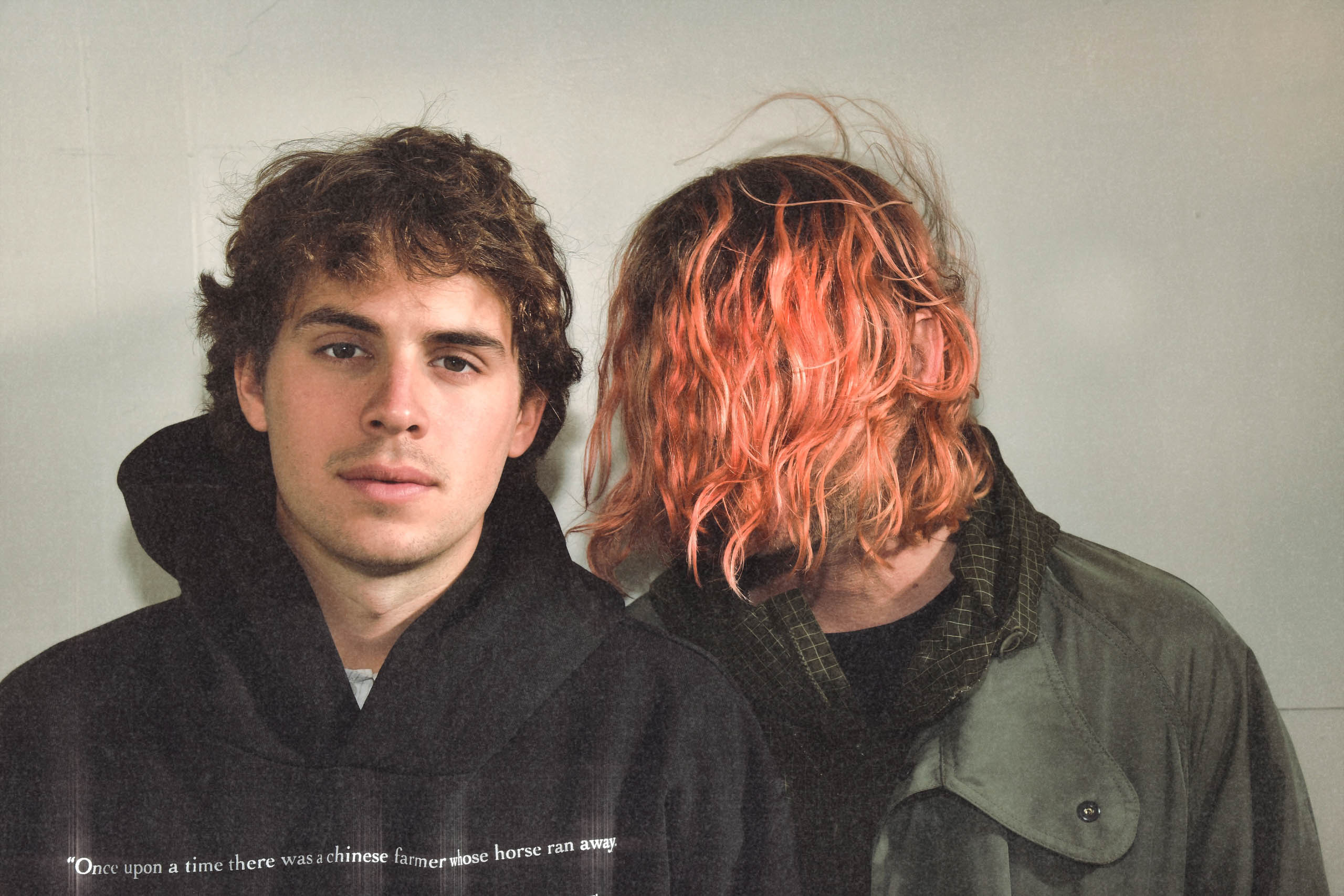After bonding over obscure ’70s yacht-rock anthems and other extremely deep cuts, Royel Maddell and Otis Pavlovic decided to tinker with some idiosyncratic tunes of their own while toiling away at their day jobs. It’s a familiar enough story, albeit with a novel ending—instead of succumbing to the daily grind, the duo now known as Royel Otis went on to rack up hits, play over a hundred sold-out shows across continents, and even become immortalized in a crossword puzzle.
Their ascent into the indie-pop stratosphere began with February 2024’s Pratts & Pain LP, named after the South London pub where most of the record’s lyrics were written. Built around jangly guitar riffs and bittersweet hooks, the record delivered hits like “Fried Rice” and “Foam,” and was buoyed by the viral cover of Sophie Ellis-Bextor’s “Murder on the Dancefloor” Royel Otis performed for Triple J’s Like a Version series a month prior to release. That cover rocketed the band into the global spotlight, reaching #1 on Alternative US Radio, #2 on Billboard’s Alternative Airplay chart, and peaking at #2 on Triple J’s Hottest 100 of 2024.
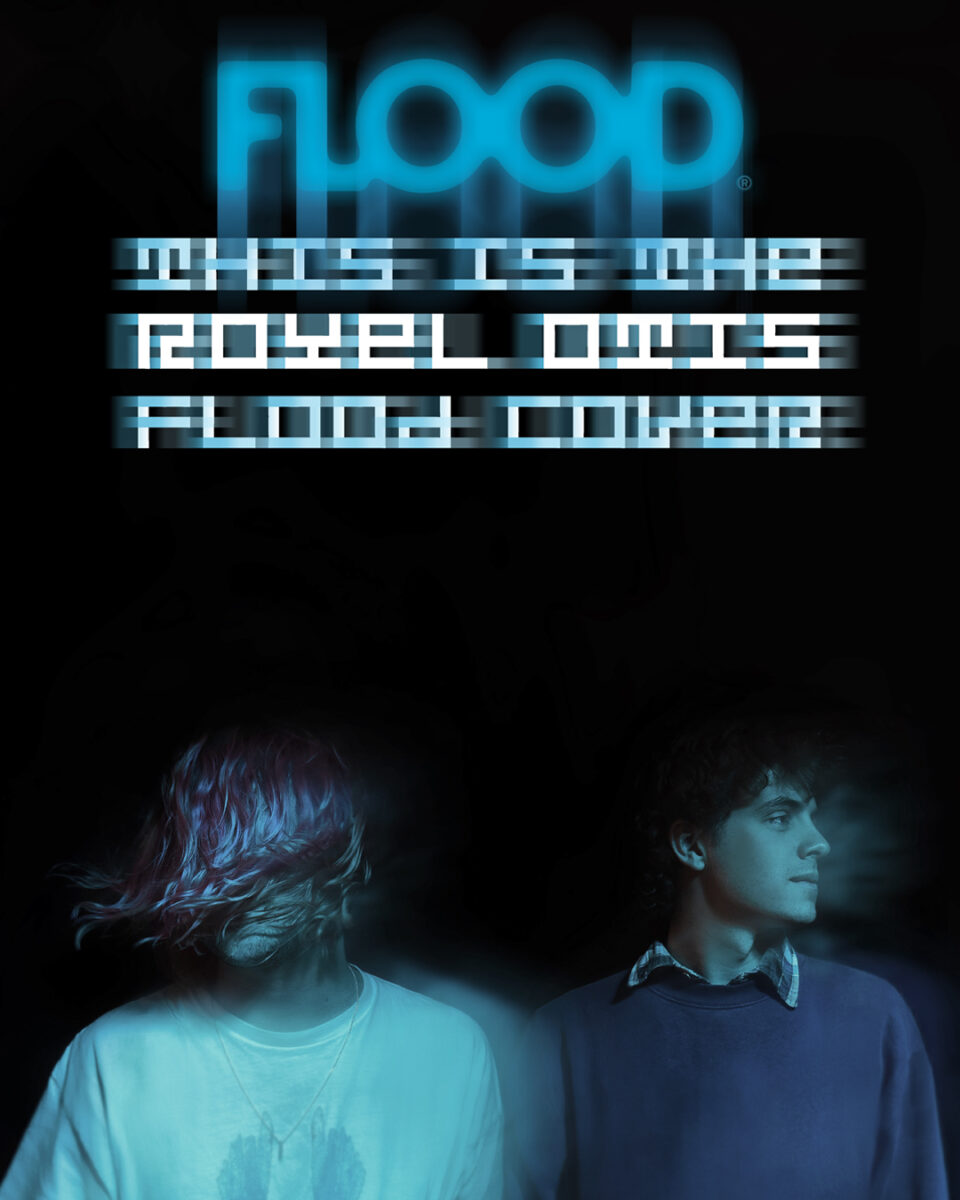
The cover completely transformed the Y2K classic, newly viral after a memorable sync in Emerald Fennell’s 2023 film Saltburn, and solidified Royel Otis as a band capable of combining perky pop hooks with indie credibility. The duo’s fanbase and touring opportunities grew exponentially in the wake of the song’s success—a trend that continued when they did it all over again a couple of months later.
Royel Otis’ live cover of The Cranberries’ 1993 hit “Linger,” recorded for a Sirius XM session, marked another major milestone, landing the guys their first entry on the Billboard Hot 100. Their sold-out shows across the UK, Europe, Australia, and the US further cemented their arrival as not just viral stars, but a live act to be reckoned with. So, how do you follow such a seismic introduction without descending into the dreaded sophomore slump? By releasing a hook-laden jukebox of indie-pop ear candy.
If Pratts & Pain was the sound of a band falling in love with music, and each other’s creative instincts, then hickey is a result of the inevitable bruises left behind by the rollercoaster of burgeoning fame. Bursting with shimmering guitar lines, vulnerable lyrics, and a deeper embrace of pop craftsmanship, the Australians’ sophomore album—which arrives August 22 via OURNESS/Capitol Records—is a confident and sonically bold leap forward.
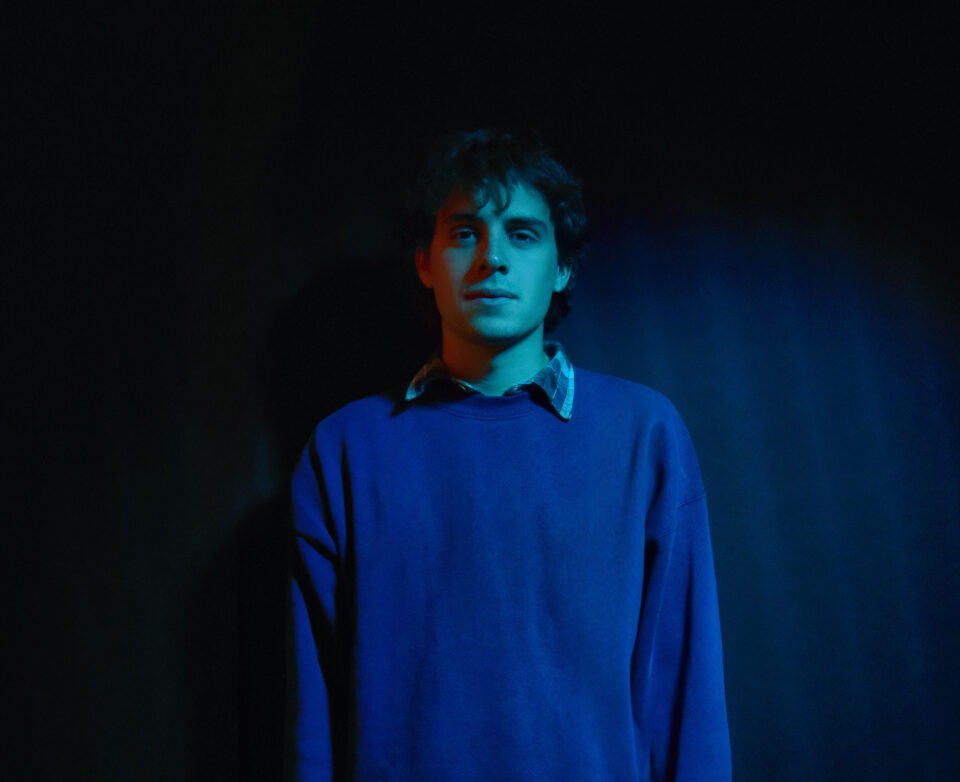
“Love bites harder than any other emotion.” — Otis Pavlovic
“Our lives have had to change so much. We’ve had to make decisions to separate parts of our lives from other parts. It’s hard to hold down a relationship when you’re constantly saying goodbye.” — Royel Maddell

While still steeped in the wry wit and charm that defines the Royel Otis sound, the album ventures deeper into pop territory and further refines the chemistry that’s always been at the center of the band. It still wears its heart on its sleeve, but that sleeve’s been hemmed by some of the most sought-after names in contemporary music: Blake Slatkin (Ed Sheeran, SZA), Omer Fedi (Lil Nas X, The Kid LAROI), Jungle’s Josh Lloyd-Watson and Lydia Kitto, Julian Bunetta (Teddy Swims, Gracie Abrams), Amy Allen (Harry Styles, Sabrina Carpenter), and Billy Walsh (Post Malone, The Weeknd).
It’s a far cry from the band’s DIY beginnings. “There’s a lot more pressure,” Royel says of working with the who’s-who of A-List producers. “You’ve only got a certain amount of time in the studio with those guys, so you’ve got to get something out.” Working to a timetable took some getting used to. “When you’re at home, you can have verbal diarrhea,” he laughs. “You just do whatever you feel like.”
Bringing in new collaborators was always going to be a risk, but instead of diluting the band’s sound, fresh ears seem to have amplified it. There are nods to ’80s pop (the “Take on Me”–inspired drums of “Say Something”) and alt-rock past (Johnny Marr’s fingerprints hover over much of the guitar work), but nothing feels like pastiche. The influences are simply absorbed into the duo’s DNA. Songs are shorter, arrangements leaner. Every choice feels intentional, and that clarity extends to the lyrics, which find Royel Otis navigating the emotional whiplash of life on the road.

“Love bites harder than any other emotion,” Otis says in explanation of the title. And while that might sound like a throwaway line, the sentiment runs deep: hickey is an album shaped by separation, instability, and premature endings. “Our lives have had to change so much,” Royel chimes in. “We’ve had to make decisions to separate parts of our lives from other parts. It’s hard to hold down a relationship when you’re constantly saying goodbye.”
There’s a quiet narrative running through hickey: from exhaustion with the new status quo to acceptance, from departure to reconciliation. It’s subtle, but it’s there—in the sequencing, in the pacing, in the ache between verses. Royel Otis might still be figuring out exactly who they are, but with hickey, they’ve proven that evolution doesn’t require reinvention. Just clarity, commitment, and, honestly, a little bruising.
Not that hickey wallows in self-reflection—if anything, it embraces the sense of flux they currently feel and turns it into movement. Nowhere is that clearer than on new single “Car,” a track Royel Otis debuted at Governors Ball that instantly resonated with fans. Written during a whirlwind year of touring and fleeting encounters, the track captures the ache of connection in motion as Royel recites a lyric that forms the song’s emotional spine: “Wouldn’t want to waste your time.”
“It was one we had from last year,” Otis says of the earworm, which they co-crafted with Slatkin and Fedi. “We had the first verse and built it from there. We were talking about endings, hanging out in cars, the kinds of moments that stay with you.” Royel believes there’s another reason for the song’s resonance. “Everyone’s had a breakup in a car,” he says. “You’ve got the exit right there—you can just open the door and bail.”
Directed by their longtime friend and tour photographer Jamieson Kerr, the “Car” video captures this mood perfectly: bittersweet, fleeting, and filmed through the lens of someone who knows the band intimately. “He’s our best mate,” Royel says. “He’s like another member of the band.” It’s the first official video of the hickey era after lead single “Moody” dropped with a simple yet—much like the song itself—conversation-starting visualizer.
Co-written with Amy Allen, ”Moody”—a fast-paced, harmony-heavy burst of unfiltered shit-talking—turned out to be the most divisive track of Royel Otis’ career to date when the lyric “my girl’s a bitch when she’s moody” triggered something of a backlash. The band’s lawyers were quick to respond to the brewing media storm on their behalf. “This song is written from a specific perspective, it is not intended to convey a broader view or standpoint about women in general,” their legal representatives shared. “We apologise if anyone understood those lyrics otherwise.” While the situation clearly caught them by surprise, Royel Otis remains philosophical. “It’s so easy to be misunderstood and misinterpreted when there’s so many people to understand or misunderstand,” Otis says. “Everyone’s got their opinions, and that’s important. It’s a good thing.”
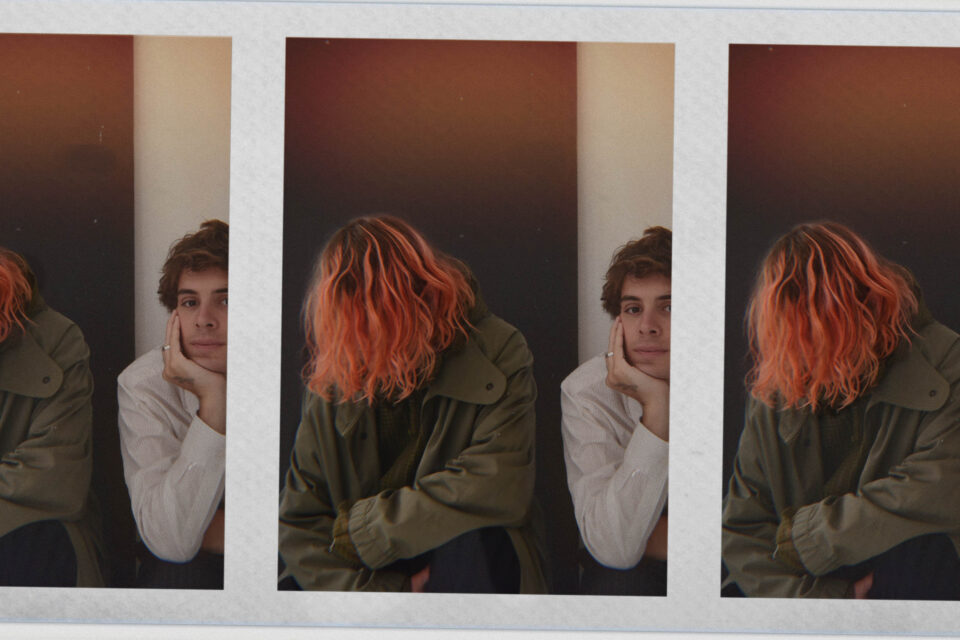
“Everyone’s had a breakup in a car. You’ve got the exit right there—you can just open the door and bail.” — Royel Maddell
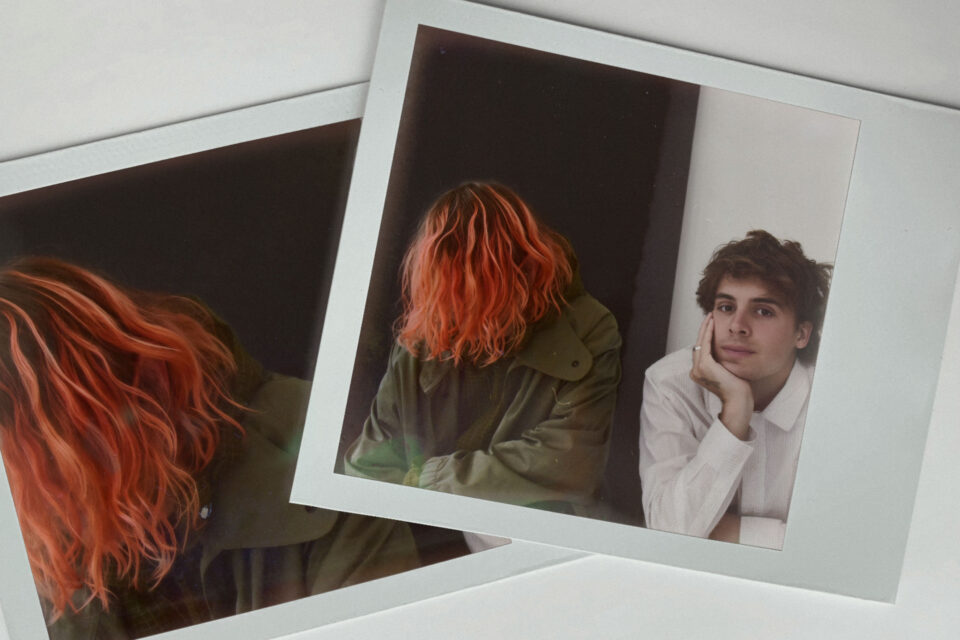
It’s clear that team Royel Otis, despite being fast learners, is still getting used to fame’s less glamorous aspects. “The head noise,” Otis puts it, when asked about the downside of living your dreams. “You’re constantly being judged and putting yourself out there. It can be exhausting and a little daunting.” Royel thinks they’re getting used to it, though. “It’s all part of it—every job has its downsides.”
The weight of making music for a new and rapidly growing audience could explain why hickey had a comparatively long gestation period. While the recording of Pratts & Pain took just three weeks, their sophomore set unfolded over a longer period—about three months in early 2025. And though that might seem brisk by major-label standards, expectations loomed large over the making of the album.
“We want to come up with something that’s as well received as the covers we did,” Royel says of the band’s new benchmark of success. “Obviously, those original songs are so timeless and amazing, we’re grateful—those covers introduced us to a completely new audience—but we don’t want our biggest songs to be someone else’s.” That sense of ambition pushed the duo to expand their horizons in every session.

“Sometimes we go in with a written idea and build from there,” Otis says of working with their expanded circle of collaborators. “The writers like to ask what’s going on in your life, and we just talk about it. Other times we just start a new tune on the spot.” It mostly came down to chemistry, according to Royel. “If we didn’t get along really well with someone, we wouldn’t work with them for multiple days. But everyone had mutual respect.”
Album opener “I Hate This Tune” sets the tone for hickey with its layered melancholy. Originally conceived during sessions with Dan Carey for their debut, the track was reimagined by Slatkin and Fedi, pairing earnest vocals with bright guitar riffs. It’s an anthem about creative fatigue that somehow feels like a reset button. The result is a new fan favorite which, I suggest to the duo, feels reminiscent of early The Cure. “That’s what we want to hear,” Royel laughs. “Big fans of The Cure.”
Elsewhere, hickey explores new corners of the pop universe. “Say Something” and “She’s Got a Gun” dabble in melodrama and miscommunication, blurring the lines between satire and sincerity. “Come on Home,” “Dancing with Myself,” and “Good Times” find the duo working with UK indie-dance icons Jungle. “With them, we dove more into harmonies,” Royel says. “They’re amazing at putting together harmonies.” Produced by longtime collaborator Chris Collins, “Torn Jeans,” on the other hand, offers a moment of groundedness—a homesick love letter that anchors the record in something tactile.
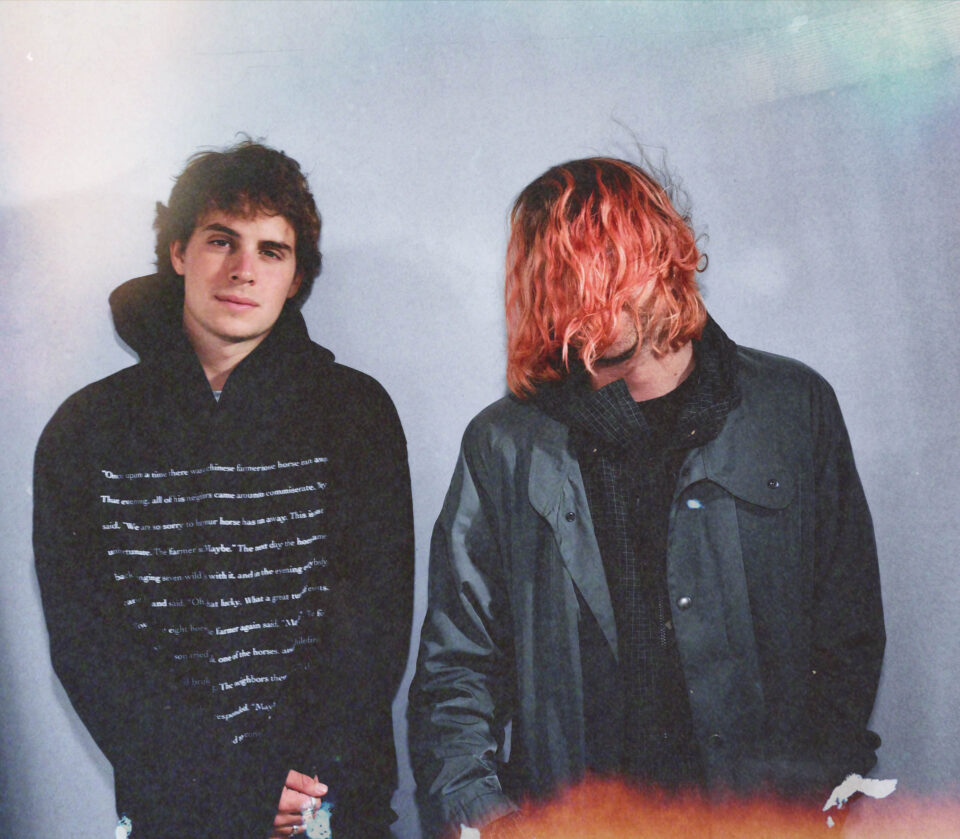
Other inspirations for the album range from Death Grips and Mk.gee to Selena Gomez’s electro-pop detour with Benny Blanco, “Bluest Flame.” That latter song is lyrically indecipherable, a description that also applies to hickey’s oddly named “Jazz Burger”—which, believe it or not, is an actual thing. “It’s not a metaphor,” Otis insists. Instead, the title derives from a meal at LA’s Jitlada Thai restaurant. “We ate it one night after recording, and Royel grew a thorn in his chest.” Royel confirms the story: “It felt like a bone pushed to the front of my chest from severe spiciness,” he insists with mock earnestness.
It turns out that the guys are serious foodies. When asked for their favorite LA eats, Otis name-drops Japanese hotspot Matsuhisa as well as a turkey burger pop-up in Malibu, while Royel swears by Santō Sushi in Silver Lake. “They’ve got this chocolate grilled sushi,” he says. “It sounds wild, but you’ve got to trust me.” No doubt, the band will be tasting the best local cuisine when they hit the road for their meet me in the car tour, which touches down in North America in August after a string of European dates.
“We definitely thought more about how songs would translate live,” Royel says of their upcoming tour dates. “It’s more guitar-driven, less synths or weird syncopated drum beats,” Otis concurs. “There’s not a bunch of stuff going on. It’s simpler.” They’re also focusing on building a setlist that blends the old and new. “We haven’t really started rehearsing yet, but it’ll be a mix of both albums,” Otis says. “We’re already doing three of the new songs live,” Royel adds. “That number will increase.” As will the seating needed at each venue along the way.
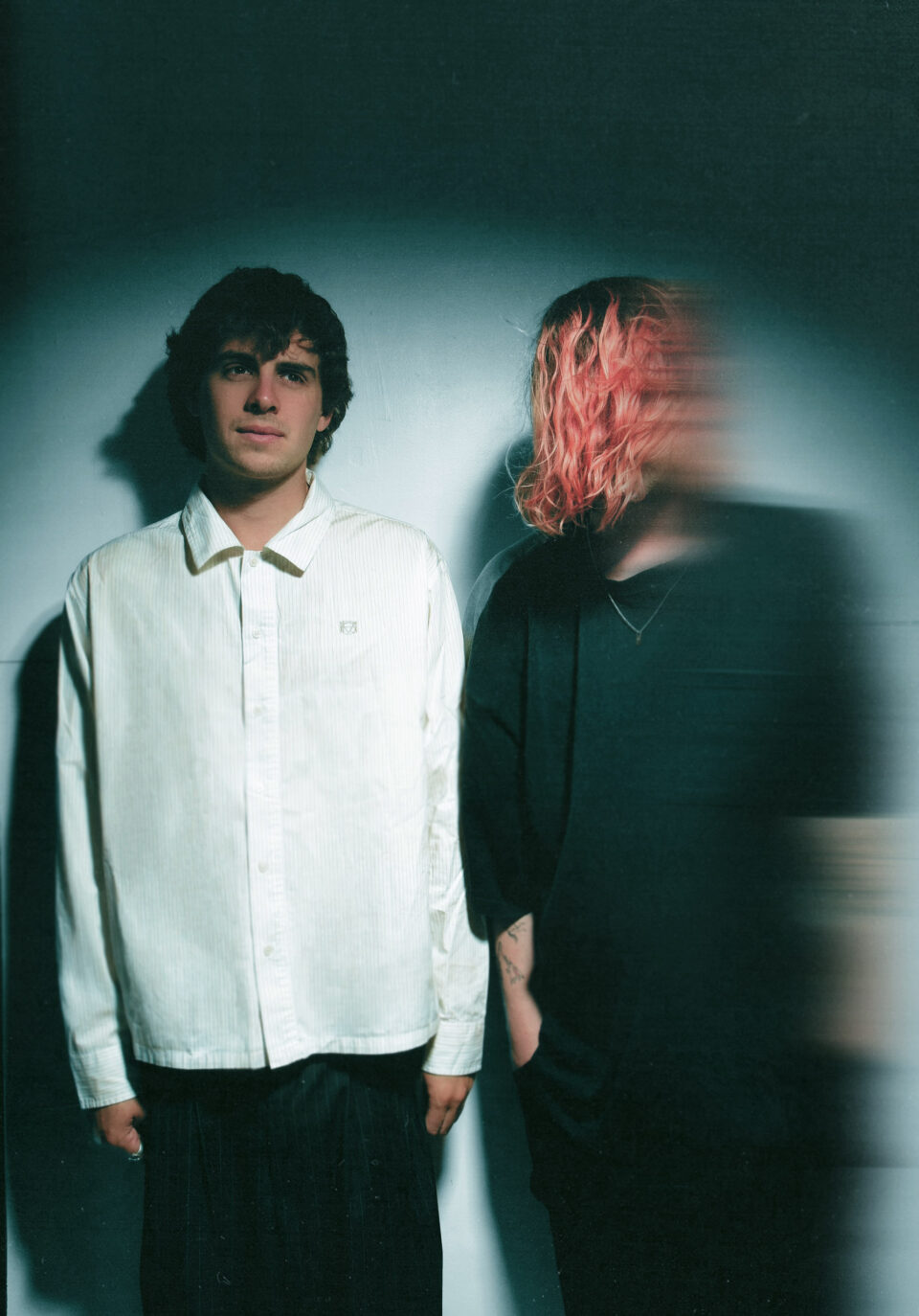
“We want to come up with something that’s as well received as the covers we did. We don’t want our biggest songs to be someone else’s.” — Royel Maddell
While their crowds get bigger, the band remains focused on keeping their live show intimate. “It still feels like those 150-capacity pubs,” Royel says. That’s not to say that the staging hasn’t evolved. “We definitely try to think more about the visuals and lighting. It makes such a massive difference.” The new tour will be quite the departure from the band’s first-ever show at The Vic on the Park in Sydney’s Marrickville during COVID, with a seated and masked crowd due to social distancing requirements. There might even be the odd ’90s hitmaker in the audience. “Gregg Alexander from New Radicals came to our show in London,” Royel says of the rocker, who also happened to write “Murder on the Dancefloor.” “He was dancing up the back. Really nice guy.”
When asked if there’ll be a cover or two in the mix of their new setlist, Royel Otis is adamant that two viral indie-pop makeovers is enough for now. However, there are a smattering of theoretical options for down the road. “Cyndi Lauper’s ‘Time After Time’ or ‘True Colors,’” Otis proffers sheepishly when pressed on the matter. “I love Cyndi, but we’ve done two songs by female singers—maybe we should change it up.”
The duo puts their impeccable, rather mature taste down to their parents. Otis fondly remembers his dad playing guitar around the house and his mom constantly talking about music. For Royel, it was split between weekends with his dad—who introduced him to Simon & Garfunkel, Sinead O’Connor, and Nick Cave and the Bad Seeds’ Murder Ballads—and weekdays with his mom, who played Crosby, Stills, Nash & Young on repeat. “Good stuff,” he says. “That definitely influenced me.”
In many ways, family remains the band’s compass. “The biggest pinch-me moment?” Royel asks. “Being a clue in a crossword puzzle. I was like, ‘Fuck, dad’s going to love this.’” It’s that combination of humor and heart that earned Royel Otis their fiercely loyal following. And hickey might just be the album that transitions them from indie-darlings to something bigger, something with staying power. “We never thought we’d be here,” Otis says of their global success. “We were just making music and showing each other songs we liked. It just grew from there.”
As the release of hickey nears, Royel Otis is hopeful about their next chapter. They’ve evolved, stretched their sonic palette, and learned how to thrive under the pressure. That being said, they’re still grappling with the usual challenges of young adulthood: namely the highs and lows of relationships and dating. Because sometimes, the only thing spicier than a Jitlada jazz burger is love. FL


